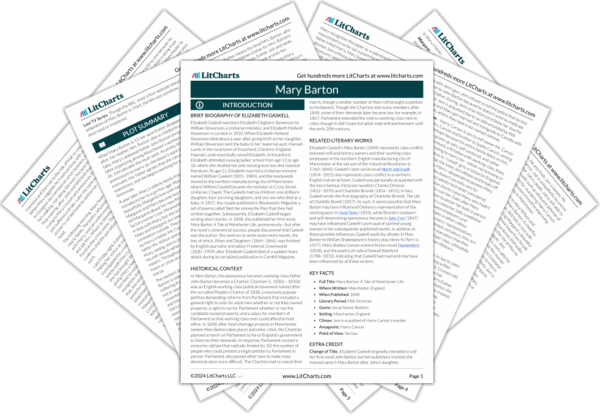This passage implies that Jem felt passively suicidal when he believed that Mary loved someone else, yet another detail that illustrates how, in the novel’s worldview, passionate romantic love is potentially dangerous and destructive when not socially controlled. Jem’s repeated question after his acquittal, “Where is she?”, implies that, for Jem, “she” can only refer to one person: his beloved Mary.
